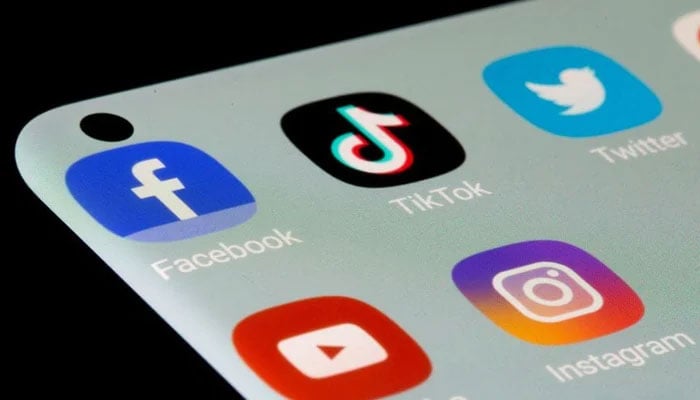Will social media influence general election results?
Young voters, especially females, will be key factor in deciding fate of political parties in elections 2024, Hilali says
January 14, 2024

- Number of internet users swelled to 87.35m in January 2023.
- Last year, number of social media users increased by over 71%.
- Success of parties will largely depend on political behaviour: Hilali.
In view of the growing number of internet users in Pakistan, experts believe that social media will decide the fate of political parties in the upcoming general elections, slated to be held on February 8.
In democratic setups, free and transparent elections provide a strong base for democracy and ensure that the government chosen through polls is of the people, by the people, and for the people.
Showcasing the signs of a healthy democracy in a country, a free, fair, and transparent election provides legitimacy to an elected government to make decisions in the national interest and the welfare of the people for the next five years.
“Election gives the authority in the hands of the public and provides them the freedom to elect the government of their choice, which will work for their growth and development besides resolution of the country’s problems,” said Professor Dr AH Hilali, former chairman, Political Science Department, University of Peshawar.
In the 2013 and 2018 general elections, he said, social media played an impactful role in deciding the fate of political parties.
“The PTI’s social media strategies and social mobilisers compared to other political parties had helped in establishing a government for a second consecutive term in Khyber Pakhtunkhwa,” he said.
According to a report from Digital Pakistan 2023, the number of internet users in Pakistan swelled to a record 87.35 million in January last year, showing a 4.4 million increase between 2022 and 2023.
The number of social media users also increased to a record 71.70 million in 2023, including 37.30 million users of Facebook, 71.70 million users of YouTube, 12.95 million on Instagram, and 16.51 million on TikTok.
Similarly, about 11.95 million people are using Facebook Messenger, 9.30 million Linkedin, 25.70 million Snapchat, and 4.65 million users of X — formerly Twitter — in the wake of an increase in mobile connections to 191.8 million in January 2023 in Pakistan.
Hilali said the process of filing and scrutinising nomination papers for the 2024 general elections was completed, and social media’s role would be crucial in the 2024 election.
He said all political parties, including PML-N, PPP, PTI, ANP, JUI-F, MQM-P, IPP, and PTIP, have shown their presence on every major social media platform for political gains.
He said all political parties and leaders have opened official pages with blue ticks on Facebook and Facebook groups for communication with party members as well as with their fans and voters.
Besides other social media platforms, he said all political leaders, including PML-N supremo Nawaz Sharif, PPP Chairman Bilawal Bhutto-Zardari, MQM-P Convenor Khalid Maqbool Siddiqui, PTI-Parliamentarians chief Pervez Khattak, and IPP patron-in-chief Jahangir Tareen, opened official X handles with blue ticks for authentication, along with official pages on Instagram by the young political leaders.
Hilali also said the success of political parties in the 2024 general election would largely depend on the political behaviour and psychological-economic factors, past service records and manifestos of political parties, rather than the launching of personal attacks, blame games, character assassination of political leadership, and dragging state institutions into politics in public meetings or issuing statements on social media platforms.
“For me, manifestos of political parties are important, and every person can see the programs of these parties by visiting their social media websites and pages with a single mobile click,” said Ehtisham Qaiser, a lecturer of Urdu literature.
During the upcoming elections, around 127 million registered voters would exercise their right of franchise in the 2024 general election, out of whom about 72.31 million (56.9%) were registered in Punjab, 26.65 million in Sindh (21%), 21.69 million voters (17.1%) in KP, and 5.28 million (4.2%) in Balochistan, as per the statistics issued by the ECP.
There were around 57.1 million youth voters aged between 18 and 35, making up 45% of those who were eligible to vote.
The number of voters aged 36 to 45 comes to 27.79 million, i.e., 21.88%, and the two age groups, if seen together, comprise 84.81 million voters, or two-thirds of the total 127 million voters in Pakistan.
Dr Hilali said the young voters, especially female voters representing nearly 50% of the population, would be a key factor in deciding the fate of political parties in the February 8 election.
The experts said that in the wake of chilly weather and security challenges, the importance of social media was further increased in the 2024 elections, and all the political parties have already started projecting their programs through different social media websites for quick dissemination of information besides grabbing maximum seats in national and provincial assemblies.











